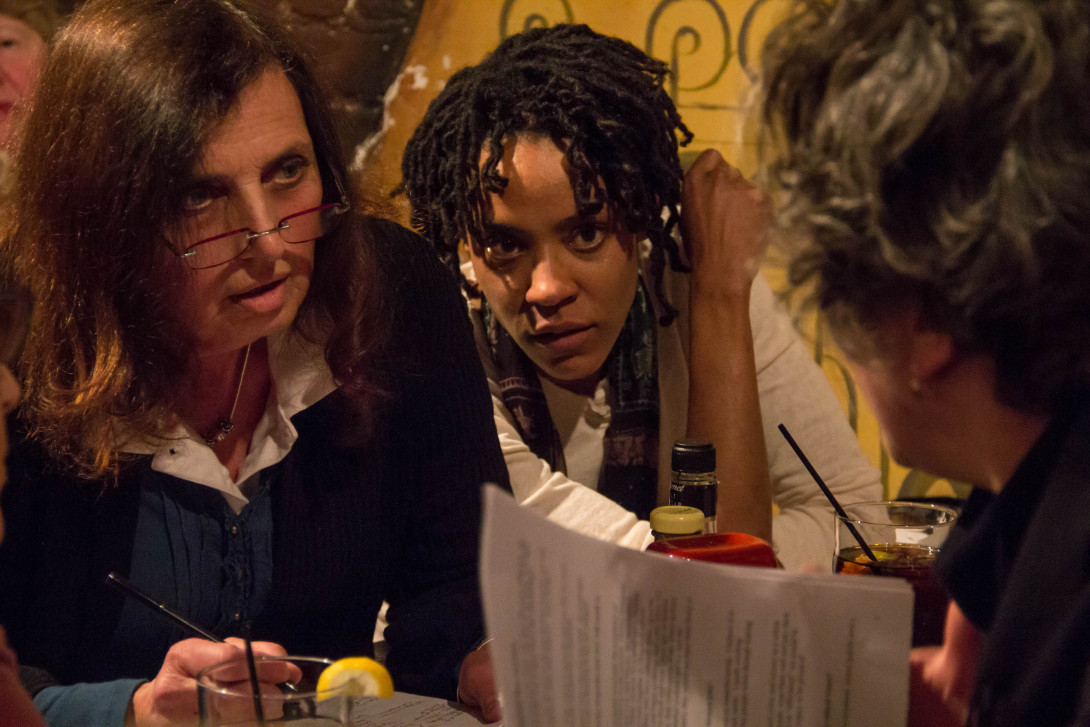Tips for Slam Teams
A2Ethics' mission is to introduce welcoming, worthwhile public events where ethical matters take center stage. That's why we created the Slam. For one evening, friends and strangers can discuss and think over Big questions that baffle and beguile us all.
We have great confidence in the deliberations of Slam teams. And we know teams want to do their best.
Since the first Slam in 2011, teams have been asking us for advice on how they can best prepare for this once-a-year event. And we appreciate being asked.
Here are some practical tips for teams to consider before their Big night out at the Slam.
Tip #1: Recognizing Ethics Issues
Several key words can help flag ethics issues or concerns in a question or situation. Among them: should, must, ought--and most crucially--right or wrong. While having ethics or being ethical is all about doing the right thing and having good character, it also involves understanding the good and bad consequences of what we and others do, and the principles behind our choices and decisions. Keep in mind that ethics issues are concerning because they "pull" us in conflicting or opposite directions. Further, ethics issues offer us no clear right answer. Responding to an ethics question in the Slam means teams make a collective decision or a judgment about what is the right to thing to do in a given situation, even when there is no clear right answer.
Tip #2: Scale Up, Give Reasons and Justify
Teams may be tempted to go to online resources to get "answers" to Slam questions. While background knowledge about question topics is valuable, we recommend that teams rely on their individual and collective knowledge, experience and reasoning. We also suggest that teams practice "scaling up." Identify universal themes and inclusive ideas embedded in the question. For example, does the question involve an issue of fairness? Is it about obligations or what we owe to others? Are fundamental rights violated? Decide together the central ethical dimensions posed in the question. And always remember: answers to ethics questions deserve good reasons and require justification. Everyone participating in the Slam--from judges and other teams to the volunteers and the audience--want to know why a team has determined that their answer is the right thing to do!
Tip #3: Deliberative Discussion
In launching the Slam, A2Ethics intended to design an event to strengthen and expand contemporary ideas of inclusive, participatory discussions and deliberative engagement.
Yes, we know all about the polarization in our communities. We know there are enclaves and islands where people of like minds wall themselves off from other perspectives. Still, we hope that our event: with a focus on ethics rather than politics; that requires listening to others; that doesn't include the "there are only two sides" approach; and that involves eating and sharing drinks together in a convivial setting--can avoid partisan noise and stand-offs.
We want to create a friendly space where people can discuss compelling issues, meaningfully disagree (importantly including within teams) and still come out of it all trusting the teammate or others with whom they disagree. And we want participants to leave thinking that it is possible to learn about deliberative discussions by doing and having them with others who live in the same community.
Above all, relax, be confident, have a sense of humor and improvise!
Please let us know if these tips have been helpful by contacting us at: [email protected]


